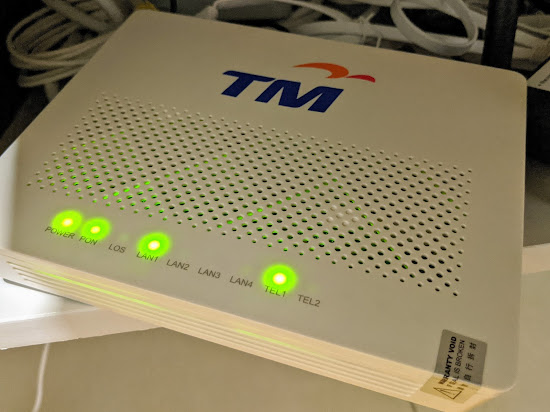An International Student's Guide To Renting In New York
 |
| To tell you the truth, it was a real pain in the beehind. *ouch* |
As international students, we don't meet 2 fundamental qualifying criteria:
1. a good credit score
2. an income of at least 40x monthly rent
Tenants in New York have many laws protecting their rights. Therefore, landlords are wary of bad tenants and have imposed strict requirements to protect themselves. Also, in New York, there is more demand than supply, so it's a landlord's market. Believe me, there are plenty of people desperate enough to sign a lease for a horrible apartment. Also, there will be many unreasonable landlords & many apartments in horrible conditions (with bugs, rats, leakages, no gas, no heating, etc).
I've heard too many horror stories about renting in New York. It's a great topic for conversations & you'll find instant rapport trading horror stories with other New Yorkers. Thankfully, I'm telling the stories instead of living one. Yes, despite the barriers, it is possible for international students to lease an apartment, & yes, we can avoid being the main character in a horror story.
In this blog post, I will share the insights I've gained while looking for an apartment in New York as an international student. Hopefully, it will save you a lot of trouble & help you make a more informed decision on your home away from home.
How to get an room in New York (in order of easiness):
1. Join another person's lease2. Get your own lease
1. Join Another Person's Lease
a) Join fellow students at your college
Let other people go through the headache for you. Be a roommate of someone who has already secured a lease. I recommend searching through websites affiliated with your university like Columbia's Off-Campus Housing Assistance or affiliated Facebook Groups like Columbia's.Benefits:
-could be cheaper than campus housing
-possibly better than campus housing (size, neighborhood, amenities)
-get to know fellow students
-fellow students are less likely to screw you over (you know where they study)
b) Join fellow residents of New York
If you don't want to stay with a fellow student, MAKE SURE YOU READ UP ON AVOIDING SCAMS. It is possible to avoid being scammed, but you need to educate yourself. Once you've educated yourself, there are plenty of websites you can use:-join Facebook Groups for housing. Facebook Group search "New York room". Join the groups, & browse the listings or post up a profile of yourself (intro self + preferences + budget) for people looking for roommates.
-Don't be afraid of using Craigslist. It's got a lot of authentic listings but enough scammers for you to be wary of almost every other post.
-Google search "New York room" & browse the respective roommate websites.
2. Get Your Own Lease
I had to find my own place because the 1-bedroom offered by campus housing at roughly $2600/month was too expensive for what it offered. I turned it down & decided to stay at a temporary Airbnb for a month while searching for a more permanent place. Then, I moved to a friend's place temporarily for a few months before finding the best apartment for the needs of my family:-something under $2000/month (including broker's fee)
-privacy: which is why we chose not to join another person's lease
-walking distance to campus: saving on commuting costs & meals
I'm glad I took my time because I found everything I wanted & more. I'll share what I know so that you'll be able to do the same!
The Fundamentals
To be considered by a landlord, you will need at least:1. a good credit score
2. an income of at least 40x monthly rent
As international students, we have neither. So, these are our options:
1. If you have a relative in the US, xe can be your lease guarantor. Xe needs to have a good credit score & an income which is 80x your monthly rent. If your guarantor has good credit but does not meet the income requirement, xe can cosign the lease with you (or, on your behalf) if xe has an income which is 40x monthly rent.
2. If you don't have a guarantor, like me, landlords will require you to pay the entire lease's rent up front (that's 1 year's lease) + a security deposit (usually 1 month's rent). You'll want to avoid this as you will not have any leverage should bad things happen in your apartment (breakdowns, repairs, etc).
3. On rare occasions, your landlord is open to negotiation. I was offered a chance to service my rent monthly with a larger security deposit (3 months' rent). Take note that not every landlord is reasonable. I actually missed out on a good apartment when I asked the landlord to fix a damaged door. The landlord thought that I was going to be "too much trouble" & offered the place to the next person in line.
4. Should you decide to take out a personal loan, you may want to read "Using a Personal Loan for a Security Deposit". This article touches on how personal loans work and what they can be used for, the different types of security deposit loans, as well as the pros and cons of using a loan for a security deposit.
a) Find As Many Apartment Rental Listings As Possible
-The best time to search for apartments is during the summer. That's when the seniors graduate & vacate their apartments. So, you'll have plenty of options. It's worth it to secure an apartment a few months prior to your university orientation.-If you're not able to come in early, don't worry. People move in & out all the time. You will still be able to find good rentals. I found my current apartment in November.
Broker's Fees:
Landlords don't want the hassle of dealing with a horde of prospective tenants so they hire real estate agents, or brokers, do it for them. Successful tenants have to pay a broker's fee (usually 10% of annual rent). It's hard to avoid the broker's fee because a large majority of properties are listed with realtors, so remember to factor that into your budget. On rare occasions, realtors have listings without a broker's fee (meaning: landlords paid them).
How to Avoid Broker's Fees:
-search listings on Craigslist with no broker's fee (paid for by landlord) or listings by landlords themselves.
-go to a broker's website & search for listings without a broker's fee
-seek out neighborhood billboards in your desired neighborhoods. They are usually at community halls, government buildings, universities, schools, supermarkets, bus stops, traffic lights, etc. Listings here are usually from landlords who are bootstrapping.
-go to buildings you like & talk to the building superintendents about available units in their building or ask them for recommendations nearby. Supers know the supers of neighboring buildings & will be able to get you connected. The super can connect you to the landlord for free.
Where to Find Listings:
-search on Craigslist but be very wary of rental scammers. There are too many good authentic listings there to totally write Craigslist off. I found my apartment through Craigslist. So, educate yourself in avoiding scams & be careful. If it's too good to be true, it often is.
-go to a realtor's website & search their listings. In New York, most properties are listed with realtors.
-search public Facebook Groups or those affiliated to your university. People move in & out all the time so there will be offers in those groups to take over a lease, offers by landlords, or offers by brokers.
-Google search "new york city apartment for rent". Browse the websites with rental listings.
b) Visit As Many Apartments As Possible
My wife & I went around the city looking at apartments in different neighborhoods & it really helped us to understand the market & choose the best bang for our buck.-We found that for $2000/month, apartments downtown of 125th street were pretty much like large closets.
-People in New York like to hang out in the streets.
-The people in Hamilton Heights are very friendly & talkative.
-Harlem is safer than people think it is.
-Once you have a list of apartments you want to look at, call or email the contact person. The people here respond very quickly to emails so don't worry if some listings do not provide a contact number.
-Visit as many apartments as you can to get a "feel" of the market & the different offerings within your budget. Visit apartments above & below your budget.
-Don't feel pressured to commit. Brokers are usually pretty cool. Those who try to pressure you to immediately put down a deposit are usually scammers. Keep in mind though that the New York property market is very hot &, if you wait too long, a place that you like might be taken off the market.
c) CHECK EVERYTHING THOROUGHLY & PERSONALLY
-READ UP on what to inspect & PERSONALLY inspect every small detail of the apartment. You're going to live there for a year & give a lot of money to the landlord, CHECK EVERYTHING PERSONALLY.-For the apartments that you really like, remember to check the neighborhood out at night, & talk to the super, the neighbors, or the neighborhood store keepers.
International students are at a disadvantage when it comes to renting properties in New York. However, thousands of us have successfully found a place to call our home away from home. Educate yourself, seek our counsel, & you will succeed too.
Feel free to contact me if you have more questions. If this was helpful to you, leave a comment below! =)





